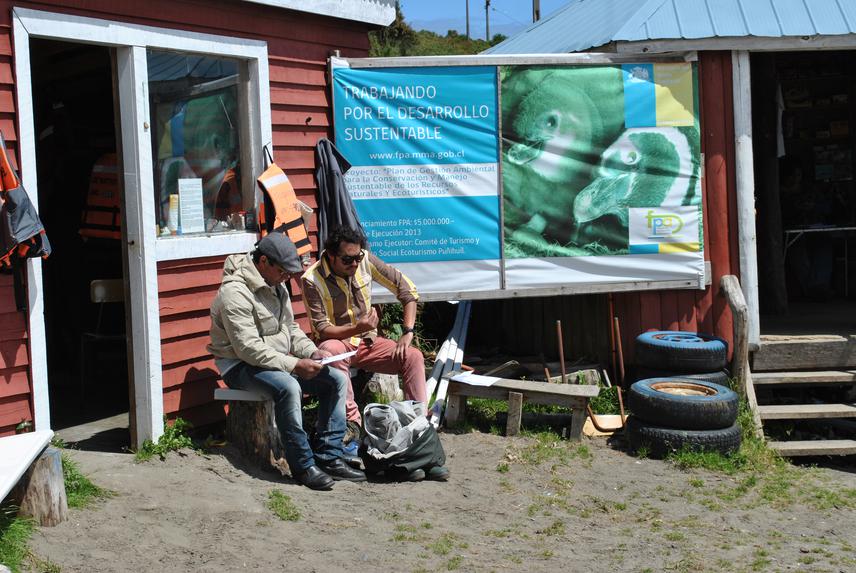Luciano Hiriart-Bertrand
Other projects
21 Jun 2017
Towards Penguin Conservation through the Implementation of Coastal Indigenous Community-Based Management
27 Aug 2019
Marine and Coastal Areas of Indigenous Peoples: A Novel Approach to Scaling Up Marine Biodiversity Conservation Efforts in Chile
This project aims to promote the establishment of a Marine Protected Area (MPA) for threatened Spheniscus penguins in southern Chile.

Interviewing relevant actors from Puñihuil community
Puñihuil Islets are considered as a critical area for the conservation of threatened Humboldt (Spheniscus humboldti) and Magellanic (S. magellanicus) penguins due to its ecological value, and the social and economic significance that this mixed-colony represents. It has been well documented that penguins off the islets constantly interact with coastal gillnets, causing a decrease of their populations in the area. Since 1999 when the breeding site of the mixed-species colony were protected and recognized as a Natural Monument, several initiatives were established in order to improve knowledge and conservation measures to protect both penguins species. In consequence, a large number of conservation projects, conducted by NGOs, universities and the local community, have contributed to raise empirical information about these birds. Nonetherless, results mainly address deficiencies produced by unregulated tourism, as well the biology and ecology of penguins.
Considering the ecological implications of this mixed-species colony as well as the economic value that the presence of penguins represent, it is crucial to create a mechanism to ensure protection of their marine habitat. Continuously are reported injuries or mortalities of penguins, which are linked by two primary sources: boat strikes and entanglements in gillnet fishing gear. This project aim to provide knowledge about the ecology, biology and conservation of threatened penguins in order to promote the establishment of a MPA that may contribute tremendously to both local conservation and community development, and to increase positive attitudes towards MPAs. This project will offer a cascade of benefits to protect essential habitat to the survival and recovery of both threatened species. Under these circumstances, we would like to offer participatory workshops in order to link stakeholders with the benefits of MPAs by creating an educational and outreach programs as well to encourage local authorities to address conservation measures to preserve both species of penguins and their marine ecosystem.
In essence, this project will utilize participatory community conservation education, social marketing, and communications techniques to promote marine conservation issues within different sectors of society, focusing on behaviour change for penguin conservation. Through participatory planning workshops, stakeholders at the both grassroots and national levels will identify root causes of behaviours impacting penguins. The process will identify target audience and tools to raise awareness, increase knowledge, influence attitudes, advocate for removal of barriers to change, and provide access and training in livelihoods options for people dependent on marine resources for survival.